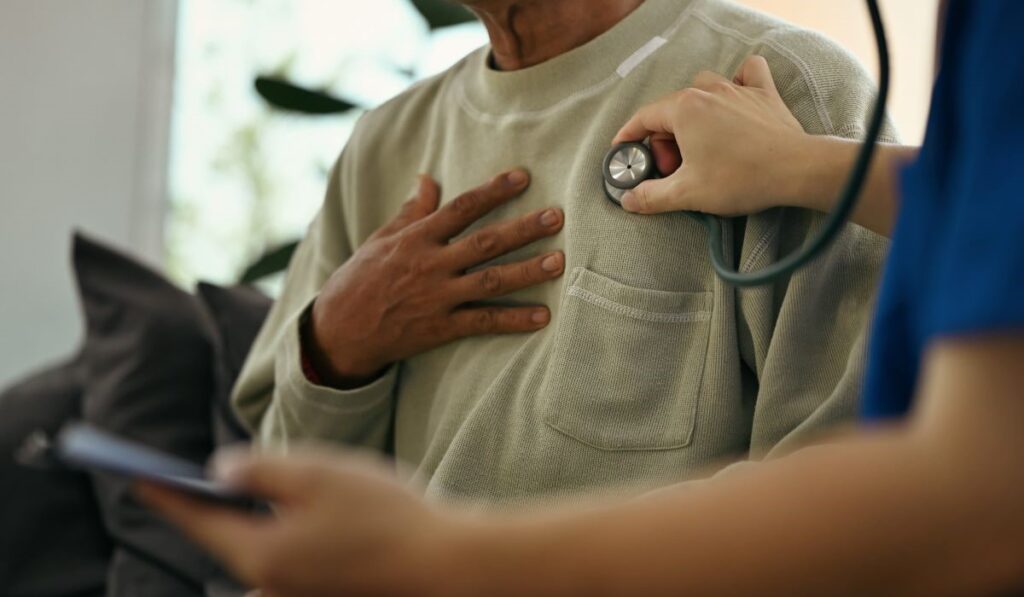Mental wellness and physical health can both sink with a drug addiction. With a deeper understanding of addiction’s repercussions, you can see exactly how.
Exploring the Mental Health Dimension
Mental health and drug addiction often connect. Mental health conditions can increase the risk of addiction. Similarly, long-term substance abuse can worsen existing mental health problems.
Understanding the Co-Occurrence of Drug Addiction and Mental Health Disorders
Data from 2019 highlights how common a dual diagnosis is—9.5 million adult Americans have a substance abuse issue and a mental health disorder.
Impact of Substance Abuse on Mental Health
Mood, behavioral, and cognitive differences happen because drugs can shift brain chemistry. Sometimes, these changes can appear as mental health conditions, like anxiety. When a dual diagnosis is in play, recovery can be harder because treatment will need to account for both.
Delving Into Physical Health Effects

Drug use can have major damaging effects on systems within the body. Consequences depend on the drug used, the quantity, and factors like tolerance.
Immediate Health Consequences
Because the body sees illicit drug use as a toxin attacking it, various issues can occur fairly quickly. Some struggles include:
- Overdose: This can lead to a coma or death.
- Respiratory Problems: Opioids (depressants) can slow breathing, which can cause respiratory depression. Cocaine (stimulants) can increase heart rate, which can cause chest pains. Inhalants can damage airways, making breathing a challenge.
- Irregular Heartbeat: Stimulants can hasten heart rate and cause irregularity. Hallucinogens can create unpredictability in heart rate and blood pressure.
- Impaired Coordination: Most drugs can influence the central nervous system, leading to poor reaction times, balance, and speech. This can increase the likelihood of accidents or injuries.
Some more symptomatic effects include:
- Nausea and Vomiting: Drugs can irritate the stomach and digestive system.
- Seizures: Withdrawal from some drugs, particularly alcohol and benzodiazepines, can cause these.
- Psychosis: Some drugs, like high doses of hallucinogens, can trigger paranoia, and delusions.
- Liver Damage: Heavy alcohol use and certain drugs can damage the liver, which aims to filter toxins from the body.
- Kidney Damage: This can make dispelling waste challenging.
Long-Term Health Complications
Continued drug abuse can lower your quality of life and increase the chance of premature death. Aside from damage to major organs like the brain, chronic drug use can have the following effects:
- Organ Damage: For instance, drug use can overwork the kidneys and cause kidney failure.
- Sexual Dysfunction: Problems with sexual function and fertility can arise for men and women.
- Skin and Dental Problems: Drug use can lead to skin sores and issues with your teeth.
Specific Organ Damage: Heart, Liver, Lungs, and Brain
Let’s review how drug addiction can affect your crucial organs:
- Heart: Long-term drug use can damage the heart muscle, valves, and blood vessels. Stimulants like cocaine and meth especially strain the heart.
- Liver: Intravenous drug use can cause liver damage, including hepatitis. Cirrhosis, a scarring of the liver tissue that impairs its function, is a risk for those who abuse drugs like steroids or certain antibiotics.
- Lungs: Breathing challenges can result from inhaling drugs like marijuana.
- Brain: Altering the brain’s reward system can shift how it responds to pleasure and reinforcement. Impaired memory, learning, decision-making, and concentration are also common issues.
Common Health Problems Arising From Drug Addiction

You can also compromise your overall wellness through drug abuse.
Respiratory Issues and Cardiovascular Problems
Tobacco, cocaine, and methamphetamines can drastically increase the chance of respiratory issues like:
- Chronic bronchitis
- Emphysema
- Lung cancer
High blood pressure and other cardiovascular concerns can cause dangerous health scares, like a heart attack or stroke.
Infectious Diseases and Weakened Immune System
Intravenous drug use is often associated with reckless sexual behavior. With this comes a higher chance of contracting infectious diseases like HIV, hepatitis B, and hepatitis C.
Plus, with a weakened immune system from continued drug use, you could contract infections or illnesses a lot easier.
Nutritional Deficiencies and Related Health Complications
Drug use takes preference over food for those with addiction. Sadly, poor nutrition means the body isn’t getting the vitamins and minerals it needs.
With this, your immune system can weaken and make you more likely to get sick. Anemia is also a potential issue, due to low iron, folate, or vitamin B12. Additionally, osteoporosis can occur due to less calcium and vitamin D, which both work together to strengthen bones.
Strategies for Addressing Health Concerns
Because of the health-related worries connected to drug addiction, treatment is invaluable. Luckily, there are facilities to guide you through it. For example, Heartfelt Recovery Centers’ addiction treatment favors comprehensive care for long-lasting wellness.
With treatment comes multi-layered care, which can include:
Holistic Treatment Approaches
It’s useful to address the physical, mental, and emotional sides of addiction recovery. This can involve proven therapies, medical intervention, and lifestyle support like nutritional therapy.
Integrating Medical Care With Behavioral Therapy
Behavioral therapies like CBT and counseling can assess the psychological aspects of addiction. Coupling this with medication can be beneficial, especially when the body fights withdrawals. However, any medication is only allowed under careful medical professionals’ supervision.
Support Programs and Resources for Recovery
Support groups or facility-provided workshops can go a long way to sustained sobriety. Aftercare can also include individual therapy sessions to help you stay on track.
Overcoming Drug Addiction: Seeking Help and Support

The first step is simple but may be one of the most difficult: Recognizing and accepting you need help. But once you’ve taken this courageous step, the next part involves the following:
Accessing Treatment Resources
Seek an addiction treatment facility that aligns with your needs. At Heartfelt Recovery Centers, our team guides you through treatment options and any other worries. Choosing the place that ensures a stress-free transition to a safe program sets the supportive tone for your recovery.
Building a Supportive Environment for Recovery
Whether it’s through family therapy or treatment center staff, a support system is vital. Plus, connecting through group therapy can subside loneliness through your recovery.
Empowering Individuals to Prioritize Health and Wellness
At Heartfelt Recovery Centers, we believe in your power to heal. The knowledge and support to break free from addiction’s grip can help you reclaim a healthier life. If you’re ready, why not embrace help? With our support, you can work toward a hopeful future free from drug abuse.

